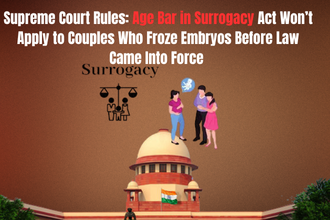In a significant development in the Savarkar defamation case, an MP/MLA Court in Pune has summoned Leader of Opposition and Congress MP Rahul Gandhi to appear personally on May 9, 2025, for the recording of his plea. The move comes after a criminal defamation complaint was filed against Gandhi for allegedly making derogatory remarks about Hindutva ideologue Vinayak Damodar Savarkar during a speech in London in 2023.
Background of the Case
The complaint against Gandhi was filed by Satyaki Savarkar, the grand-nephew of Vinayak Savarkar. Satyaki has alleged that Gandhi, while addressing an audience in London in March 2023, referred to an incident supposedly described by Savarkar where a group, including Savarkar, assaulted a Muslim man, and portrayed the incident as “pleasurable.”
The complainant has vehemently denied the existence of any such passage in Savarkar’s writings, arguing that Gandhi’s statements were defamatory and tarnished the image of a revered national figure.
Change from Summary to Summons Trial
Initially, the defamation case against Gandhi was being conducted as a summary trial, a fast-track procedure typically used for minor offenses. During this stage, Rahul Gandhi had been granted permanent exemption from personal appearance.
However, the proceedings took a pivotal turn when Gandhi himself moved an application seeking the conversion of the trial from a summary trial to a summons trial. The reason cited was Gandhi’s intention to introduce detailed historical and documentary evidence to substantiate his remarks regarding Savarkar.
Judicial Magistrate Amol Shriram Shinde accepted the request, thus changing the nature of the proceedings. In a summons trial, more elaborate evidence is permitted, and the defendant gains additional procedural rights compared to a summary trial.
Following this conversion, Gandhi is now required to appear personally to record his statement, leading to the summons for his appearance on May 9, 2025.
Legal Charges Against Rahul Gandhi
Satyaki Savarkar has sought Gandhi’s conviction under:
- Section 500 of the Indian Penal Code (IPC): Criminal defamation, punishable by imprisonment or fine or both.
- He has also sought the maximum compensation permissible under Section 357 of the Criminal Procedure Code (CrPC).
The case is gaining considerable attention as it intertwines free speech rights, historical interpretation, and *the reputation of national figures like Savarkar.
Recent Supreme Court Observations
Parallel to the Pune proceedings, Rahul Gandhi is also facing another case in Lucknow, Uttar Pradesh, stemming from similar remarks about Savarkar.
Earlier this week, the Supreme Court of India pulled up Gandhi for making irresponsible statements against Savarkar, particularly accusing him of being a collaborator with the British and receiving a pension from colonial authorities.
Although the Supreme Court stayed the summons issued by the Magistrate Court in Lucknow, it cautioned Gandhi, warning that suo motu action could be initiated if he continued making similar remarks without caution.
The apex court’s observations are expected to have a bearing on how Gandhi approaches his defense in the Pune case.
Advocates Representing the Parties
- Advocate Milind Pawar appeared for Rahul Gandhi.
- Advocate Sangram Kolhatkar represented Satyaki Savarkar.
Both sides are gearing up for a prolonged legal battle, given the politically sensitive nature of the allegations and the potential impact on Rahul Gandhi’s political career.
Significance of the Case
This case has wide ramifications for several reasons:
1. Free Speech vs. Defamation
Rahul Gandhi has consistently positioned his comments as part of historical analysis and political critique, which he claims are protected under the right to free speech. However, defamatory statements, even if made in political speeches or academic discussions, can lead to criminal liability if they cross the legal boundaries.
2. Historical Figures and Their Legacy
Savarkar remains a polarizing figure in Indian political discourse. While some view him as a freedom fighter and Hindutva ideologue, others criticize his alleged associations with the British regime. How the judiciary treats statements about historical personalities could influence future political narratives.
3. Legal Precedent on Trial Conversions
The acceptance of Gandhi’s plea to convert the trial type from summary to summons trial sets an important procedural precedent, allowing defendants to seek a more detailed examination of facts when accused of defamation or similar offenses.
4. Political Implications
As the Leader of the Opposition and a major political figure, any adverse finding against Rahul Gandhi in the defamation case could have serious electoral and political consequences, especially with major elections around the corner.
What Lies Ahead
Rahul Gandhi will now have to personally appear before the Pune court on May 9, 2025, and formally record his plea—either accepting or contesting the charges.
If Gandhi pleads not guilty, the case will proceed to trial, where both sides will present evidence and examine witnesses. Gandhi’s defense is expected to rely heavily on historical documents and expert testimonies regarding Savarkar’s life and writings.
Conversely, if Gandhi accepts guilt and seeks compounding of the offense, the case could conclude at an earlier stage, although this appears unlikely given the political implications.
Conclusion
The Savarkar defamation case against Rahul Gandhi marks a crucial moment at the intersection of *law, **politics, and *history. It raises important questions about the limits of political speech, the rights of historical figures to protection from defamation, and the procedural safeguards available to accused individuals.
As the trial progresses, it will be closely watched not just by political analysts and legal experts, but also by the public at large, given its potential to influence political discourse and the legal treatment of statements concerning historical personalities.
The court’s handling of this sensitive case will likely set an important benchmark for future defamation proceedings involving politicians and public figures.


